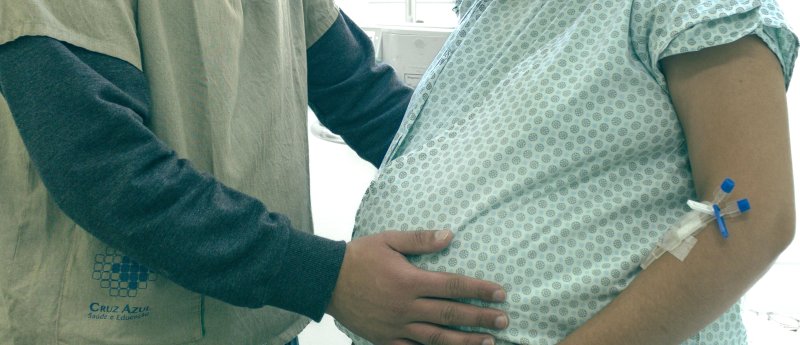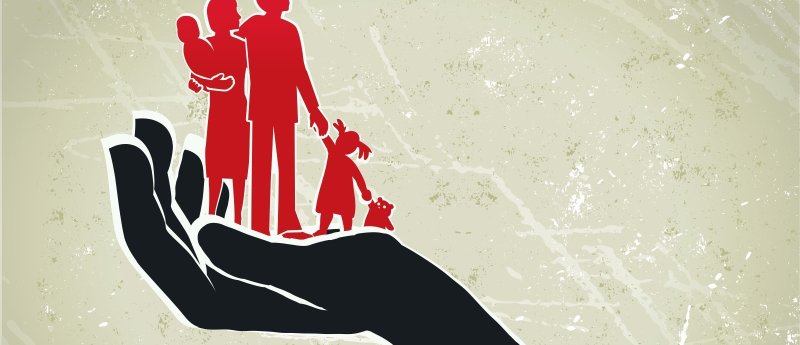 Immigration
Immigration
-
 Turning research into actionTurning Research Into Action: A Round-Up of 2024 P4A Insights
Turning research into actionTurning Research Into Action: A Round-Up of 2024 P4A InsightsAs we progress into 2025, Policies for Action reflects on a year of compelling policy research published in 2024. A wide range of studies that connect to health equity in America provided evidence and insights for policymakers, advocates, and community leaders.
January 31, 2025
|P4A Spark
| -
 Turning research into actionCan Medicaid and Immigration Policies Help Close Perinatal Care Gaps among Latinx Families?
Turning research into actionCan Medicaid and Immigration Policies Help Close Perinatal Care Gaps among Latinx Families?Longstanding concern in the health research community over racial disparities in maternal health is growing stronger. Large gaps in access to and the quality of perinatal care - the crucial information and screenings recommended before, during, and after pregnancy - exist within the Latinx community.
October 24, 2024
|P4A Spark
| -
Turning research into actionDisentangling Zip Code from Destiny: How Cities and States Are Implementing Effective, Evidence-Based Affordable Housing Policy
While safe, stable, and dignified housing is a cornerstone of health and well-being, providing affordable housing for everyone remains a critical challenge for communities across the nation.
July 16, 2024
|P4A Spark
| -
 Turning research into actionNationwide Investigations into the Impacts of State Preemption on Racial Justice and Health Equity
Turning research into actionNationwide Investigations into the Impacts of State Preemption on Racial Justice and Health EquityState governments have long used their powers to preempt local government rulings. This practice, known as preemption, describes the primacy of a higher authority of law (e.g. the state) over a lower authority (e.g. counties and cities).
May 29, 2024
|P4A Spark
| -
Turning research into actionIn Search of Policies that Advance Health Equity and Racial Justice: A Review of P4A 2023 Research
In 2023, Policies for Action (P4A) maintained its policy research focus on dismantling systems of inequity that drive the gaps in health and wealth along unsurprising racial lines. P4A projects were encouraged to have a racial equity lens in their design, as the evidence mounts for treating racism as a public health issue.
February 19, 2024
|P4A Spark
| -
 Children and FamiliesWhat Policies Will Allow Immigrants and Their Families to Thrive?
Children and FamiliesWhat Policies Will Allow Immigrants and Their Families to Thrive?This post originally appeared on the Robert Wood Johnson Foundation Culture of Health Blog.
February 5, 2024
|P4A Spark
| -
This study examines the impact of North Carolina’s House Bill 318 (HB 318), a state law that preempts municipal protections for immigrant communities, on the health and well-being of Latine immigrants.
March 27, 2022
|Evidence
| -
Health Care Systems and ServicesAssessment of Perceptions of the Public Charge Rule Among Low-Income Adults in Texas
A recent expansion of the federal “public charge” rule allows the government to deny immigrants permanent residency based on their income or health status or if they participate in programs that did not previously trigger the rule, such as Medicaid or the Supplemental Nutritional Assistance Program [SNAP]. Critics contend that this will dissuade individuals from participating in programs or obtaining medical care. In this JAMA Network Open paper, Benjamin D. Sommers, Heidi Allen, Aditi Bhanja, Robert J. Blendon, John Orav, and Arnold M. Epstein examine perceptions of the new public charge rule and its potential impacts on public program participation and medical care among low-income adults in Texas.
July 15, 2020
|Evidence
| -
 Health Care Systems and ServicesThree Questions about Medicaid As the ACA Turns 10
Health Care Systems and ServicesThree Questions about Medicaid As the ACA Turns 10The Affordable Care Act (ACA), which turns 10 on March 23, dramatically changed Medicaid, making it available to millions of previously ineligible low-income adults. As some states continue to debate whether to expand Medicaid and policymakers propose more far-reaching changes to the program, it is critical to provide timely evidence on how the program is working and what the potential effect of major changes would be.
March 12, 2020
|P4A Spark
| -
 Children and FamiliesHow We Crafted a Child-Focused Policy Research Agenda in Tennessee
Children and FamiliesHow We Crafted a Child-Focused Policy Research Agenda in TennesseeIn fall 2018, we launched a new Policies for Action Research Hub at Vanderbilt to examine barriers to the healthy development and success of low-income children in Tennessee. We knew that building a strong, policy-focused research agenda would require open communication and a cooperative spirit among our state agencies and community health and education organizations.
July 1, 2019
|P4A Spark
| -
ImmigrationShifting Grounds: Assessing the Impact of Florida’s Immigration Policy on Immigrant Families
This project will investigate how such policies, driven by immigration enforcement priorities, impact the healthcare behaviors and well-being of mixed-status families in Florida.
November 15, 2024
| -
Black immigrant women face compounded challenges in the U.S. healthcare system due to race, immigration status, and nativity, leading to disparities in maternal health outcomes. This project will explore how these factors affect access to maternal care and birth outcomes, especially in states with expanded Medicaid/CHIP eligibility for immigrant populations.
November 15, 2024
|